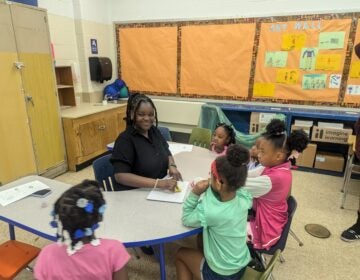Rabbi discusses role of Jews in Negro League Baseball
“When you talk about Jews and baseball, what do people say?” asked Rabbi Rebecca Alpert of audience members inside Germantown Jewish Centre Sunday morning. “Hank Greenberg and Sandy Koufax.”
But in Alpert’s view there is considerably more to be said about the subject than the careers of those two members of the Baseball Hall of Fame. Her talk organized by the Women’s and Men’s Club at the GJC in Mount Airy focused on one of the lesser-known aspects: the relationship between Jews and African Americans in the black baseball leagues of the first half of the 20th Century.
Alpert is a professor of religion at Temple University and author of such volumes as Exploring Judaism: A Reconstructionist Approach, and Whose Torah? A Concise Guide to Progressive Judaism. Her most recent work, however, is Out of Left Field: Jews and Black Baseball, which had its earliest roots in her childhood as a Dodger fan growing up in Brooklyn.
The Dodgers were the first racially-integrated team in baseball, breaking the so-called “color line” with the signing of Jackie Robinson to a major league contract in 1947 by Branch Rickey, their general manager.
“Many times my mother saw the Dodgers as Jewish,” said Alpert, “because they’d done the right thing.”Prompted by the 50th anniversary of that signing in 1997, Alpert wrote an article about Robinson. She then became interested in the role of Jews in black baseball.
“The insight that Robinson was a Jewish icon was the seed of this project,” said Alpert. “There’s just so much out there about Robinson as a Jewish hero.”
And then, said Alpert , she asked, “What came before? And what came before Jackie Robinson were the Negro leagues. They were the necessary precursor to integrated baseball.”
Behind the scenes
What Alpert found after she began her research was a complex web of interactions between African Americans and Jews in baseball that are now mostly forgotten.
For example, two men influential in the Negro leagues were Abe Saperstein and Eddie Gottlieb, who are still well-known, but are now remembered almost entirely for their contributions to basketball.
Saperstein was the founder of the Harlem Globetrotters and a member of the Basketball Hall of Fame. (At a little more than 5″ feet tall, he’s the shortest inductee ever). But he was also part-owner of several Negro league teams, a booking agent and publicist.
“He had admirers and detractors,” said Alpert. “But he was the conduit for bringing black talent into the Cleveland Indians organization and he was Satchel Paige’s business agent.”
The Indians were the first American League team to sign African American players; Paige played for them in 1948.
“Jews exploited and also supported black baseball,” Alpert said at one point. “My favorite example of that is Saperstein. He made a ton of money off black baseball but he also hired and trained many black people to work for him.”
Gottlieb’s name is still a familiar one in Philadelphia. Also a member of the Basketball Hall of Fame, he was the founder of the Sphas (named for the South Philadelphia Hebrew Association), the dominant team of the early days of professional basketball. He would go on to become the founder and owner of the Philadelphia Warriors pro basketball team, now the Golden State Warriors.
Gottlieb, however, was also a silent partner in the Philadelphia Stars team of the Negro leagues that played at 44th and Parkside Avenue in West Philadelphia, and the only white member of the National Negro League’s board of officials.
At one time Saperstein and Gottlieb were rumored to be interested in purchasing the Phillies, though nothing came of it.
An unusual discovery
A man whose career had what Alpert termed “a more troubling aspect” was Syd Pollock.
Pollack owned a team that he renamed the Ethiopian Clowns. They featured novelty acts, what Alpert termed “comedy baseball. The acts included, among other things, having their catcher bat in his full catcher’s outfit.
“They were very popular but this minstrel-style humor offended many,” Alpert said.
Alpert’s most surprising discovery during her research? “I found a black Jewish team.”
They were the Belleville Grays, members of a Virginia congregation that practiced what Alpert termed “their own variant of Judaism.”
The Belleville Grays were a good team in the late 1930s but had a problem scheduling games: they wouldn’t play ball on Saturdays while in many places Sunday baseball was prohibited.Alpert, who is on the advisory staff of the National Museum of American Jewish History located on Independence Mall, said that the museum was planning an exhibit on Jews and baseball for next year.
“I’m really hoping the Belleville Grays make the cut,” said Alpert.
WHYY is your source for fact-based, in-depth journalism and information. As a nonprofit organization, we rely on financial support from readers like you. Please give today.




